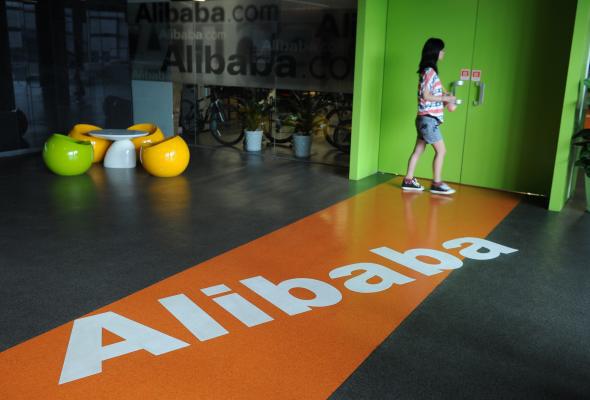The largest company you’ve never heard of is about to become a publicly traded U.S. company. After months of heated speculation within the financial world, Alibaba filed papers to list its shares in the United States. Its possible size? Somewhere between $150 billion and $200 billion dollars.
If you’re one of 1.4 billion people in China, and especially if you are part of an emergent Chinese middle class that numbers in the many hundreds of millions, you are as familiar with Alibaba as most Americans are with Amazon, eBay, and Walmart. It is not only a household name, but it is, as Alibaba itself declares in its official offering documents, “synonymous with e-commerce in China.”
Alibaba’s initial public offering is a big deal, not just in this sense that it is, literally, a big deal. It is a big deal for what it tells us about global change and dynamism.
For those in technology land, Alibaba is known simultaneously as a Chinese upstart and as an integral part of Yahoo. Yahoo was an early investor and still owns a tad under 23 percent of the company, which means that over the next few months, Yahoo will be flush with $10–$15 billion in hard cash as a result of the 9 percent it will have to sell under a pre-existing agreement.
The company has also long been known within the financial world as a behemoth in China that acts as an Amazon, PayPal, and UPS all rolled into one, plus a dollop of Facebook and other social network sites. Investment bankers have been understandably salivating over getting a piece of its public listing, and this week’s filing follows many months of back-and-forth about whether Alibaba would list its shares in Hong Kong, the U.S., or even Tokyo.
That the company and its charismatic, Yoda-like founder Jack Ma have chosen New York says something about both the company and its ambitions, as well as about the relative strengths of the U.S. and China when it comes to raising money. China may be a far bigger consumer market in the decades ahead, and certainly one that is growing far more quickly from a much lower base than anywhere in the United States, Europe, or Japan. But U.S. capital markets still retain massive advantages in terms of complexity, liquidity, and transparency.
You may not like Wall Street given its many issues over the past years. But if you are almost any company of size doing business anywhere in the world, the United States remains a safe and potent place to raise capital. Yes, the regulatory framework of recent years has made other havens such as Hong Kong and Singapore more attractive, but it is much harder to raise tens of billions of dollars in those markets. And so Alibaba, which will likely be one of the largest companies in the world by valuation in a few short months, is coming to New York.
Not that Alibaba has any immediate ambitions of doing business in the United States. The company is focused almost exclusively on the domestic Chinese market, and it is seeing growth close to 60 percent a year. It has more than 200 million active customers, sells more than Amazon and eBay combined, and has revenue of more than $1 billion a month. Yet while Alibaba is a Chinese information technology company serving consumers, its very existence derives from an early investment by an American information technology company serving consumers, Yahoo. It also benefited from a substantial investment from SoftBank, a like-minded Japanese telecom company. It may be growing because of the boom of hundreds of millions of Chinese consumers, but it is funding its next stage of growth by turning to American and global investors who want a share of it.
Alibaba is, in short, the new exhibit for the globalization of finance and commerce. It demonstrates that the rise of China is intimately tied up with the global financial system and the input of American companies, ideas, and innovations. And its listing will in turn benefit not just the company of its future growth in China, but American companies that manage the listing and of course Yahoo, which owns a chunk. If the listing goes well, this will not simply enrich the rich (though there is that). Those shares will then end up in pension plans, retirement accounts, and assorted investments for millions of people who will still never have heard of it but who may well reap the rewards.
They also may not. As we saw when Facebook and Twitter went public, hype may well exceed value, and those shares may decline, perhaps significantly. Yet there are fundamental reasons to think that Alibaba may end up looking more like Google. In fact, some such as Jim Cramer worry that Alibaba will actually be bad for U.S. technology stocks because investors will take one look at Alibaba’s revenue growth and profit compared say to Amazon and Facebook, and dump their shares in those in order to buy some of Jack Ma’s Chinese dream. But while the public offering is a binary event that may go well or badly, Alibaba represents a potent fusion of American capital, U.S. investors, and the emergence of China. It is defining the future arc of commerce in the biggest market in the world. We would do well to understand what it is and how it came to be.
